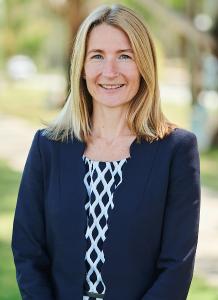Energy and climate matters affect the private, public and economic sectors alike. They also have a wider impact on foreign and security policy, and give rise to socio-cultural issues. Accordingly, they must be mastered by political decision makers and business representatives as well as society as a whole. This Periscope edition seeks to make the findings of the Dialogue and related issues available to a wider audience, so that they may be used to the greatest possible extent in the public debate, policy making process and implementation of possible solutions.
The reader may choose from a broad range of topics. Dr Joachim Pfeiffer (Member of the German Bundestag and Spokesperson for Economic and Energy Policy of the CDU/CSU Parliamentary Group) in his contribution on “Energy Transition in a Global Context” analyses various aspects of the German energy transition in the context of global energy and climate change challenges. The expert trio Jonathan Jutsen (Australian Alliance for Energy Productivity), Carsten Mueller (Member of the German Bundestag and Chairperson of the Parliamentary Circle on Energy Efficiency) and Christoph von Spesshardt (Vice-Chairperson of the German Business Initiative for Energy Efficiency) in their contribution entitled “Energiewende in Germany and Australia” focus on energy productivity and energy efficiency. They propose an ‘Enliten’ concept as a model of an integrated strategy to ensure reliable, affordable and clean energy for Australia’s energy transition. Prof Dr Friedbert Pflueger (Director of the European Centre for Climate, Energy and Resource Security at King’s College London) in his contribution on “Climate Security and its Geopolitical Implications” pays special attention to current climate security challenges (including food insecurity, water shortages, rising temperatures, extreme and unpredictable weather patterns) as well as their geopolitical implications. He focusses on two case studies, namely the Arctic region (including Greenland) and the Antarctic. Dr Frank Umbach (Research Director at the abovementioned Centre), through his contribution on “New Challenges for Raw Material Supply Security in the New ‘Rare Metal Age’ in the 21st Century - Prospects for European-Australian Cooperation” integrates raw material supply security into, and thus widens, the understanding of traditional energy security concepts.
Kelvin Say and Changlong Wang from the German Australian Energy Transition Hub in their contribution on “Energy Transition and Hydrogen Exports” regard green hydrogen as a crucial energy option and great opportunity for international cooperation and future export option for Australia. Bahador Tari from Energetics writes about “Energy Efficiency in Germany and Australia: Different Approaches, Different Outcomes”. His comparative analysis focusses on energy efficiency and the various approaches and outcomes of Australia’s and Germany’s energy policies. The BusinesNZ Energy Council in its contribution on “Cross-Country Collaboration Key to Achieving Energy Objectives” highlights the recently enhanced bilateral energy and climate cooperation between Germany and New Zealand, and hopes to find adequate solutions and ideas for New Zealand’s energy futures through international engagement. Dr Tammy Tabe (Lecturer at the University of the South Pacific) in her contribution on “Fiji’s Response to Migration and Displacement in the Context of Climate Change and Natural Hazards” focusses on specific challenges caused by climate change and natural hazards. She highlights various UN agreements and other international initiatives adopted in this regard, and analyses Fiji as a case study. There are also two statements from Jonathan Young MP - Spokesperson for Energy and Resources, National Party of New Zealand and Todd Muller MP - Spokesperson for Agriculture, Biosecurity, Food Safety and Forestry, National Party of New Zealand. Finally, Dr Frank Umbach draws conclusions and highlights strategic perspectives.
KAS Australia and the Pacific would like to thank its cooperation partners, delegates and contributors.



